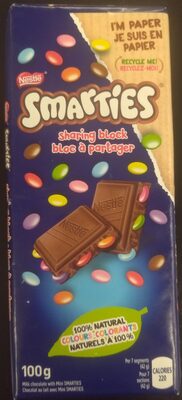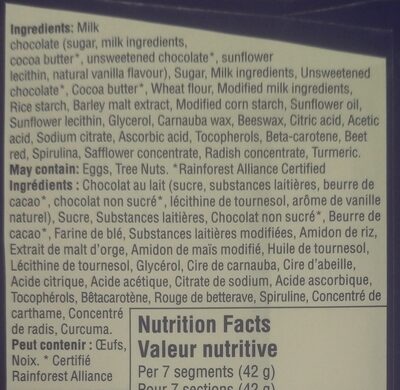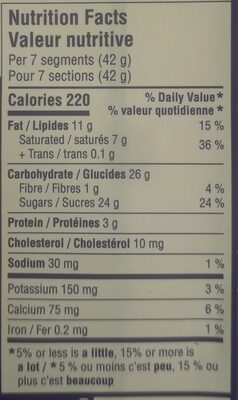Smarties Sharing Block - Nestlé - 100 g
This product page is not complete. You can help to complete it by editing it and adding more data from the photos we have, or by taking more photos using the app for Android or iPhone/iPad. Thank you!
×
Barcode: 0059800881739 (EAN / EAN-13) 059800881739 (UPC / UPC-A)
Common name: Milk Chocolate with Mini SMARTIES
Quantity: 100 g
Packaging: Paper
Brands: Nestlé
Categories: Snacks, Sweet snacks, Cocoa and its products, Chocolates
Labels, certifications, awards:
Natural colorings, Nestlé Cocoa Plan, Rainforest Alliance, Rainforest Alliance Cocoa
Countries where sold: Canada
Matching with your preferences
Environment
Packaging
Transportation
Labels
Report a problem
Data sources
Product added on by kiliweb
Last edit of product page on by binzyboi.
Product page also edited by inf, roboto-app, yuka.sY2b0xO6T85zoF3NwEKvlkFGb8XDjDP5aBr4nXeK1NiQBMLKWNd9-pDEaas, yuka.sY2b0xO6T85zoF3NwEKvlndNWYXO8yLqaCL6lEzT98qWF6X6SNRtvNjiEqo.











